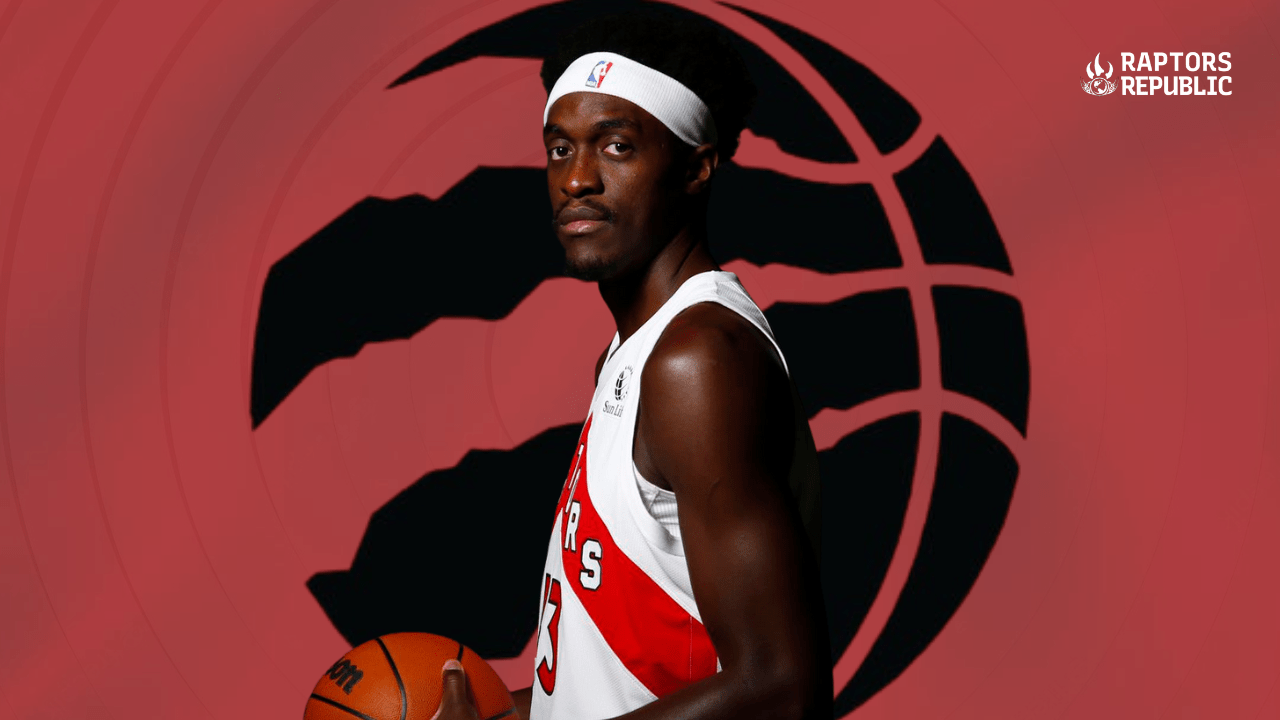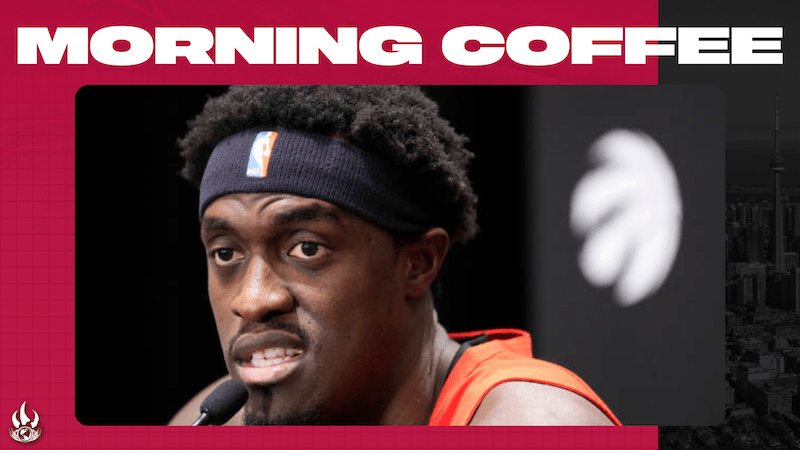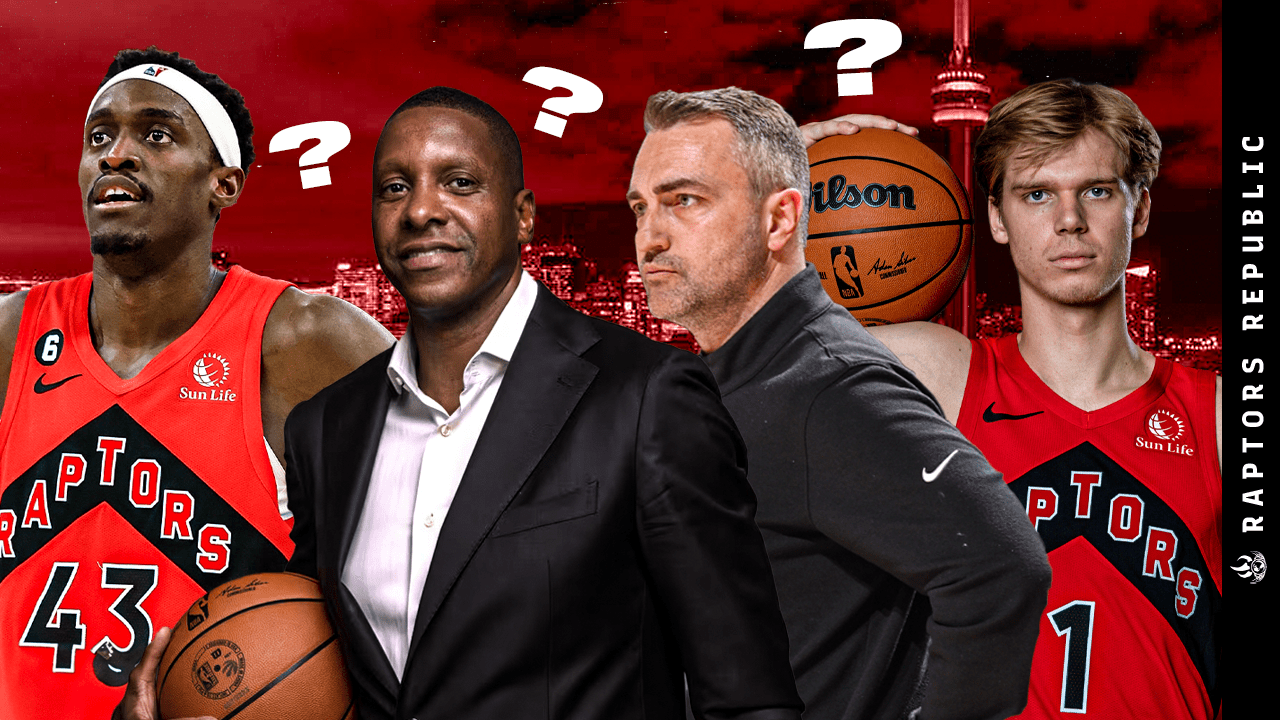Over the past four seasons, Pascal Siakam has scored the 16th-most points in the NBA, recording 5838. He has been named to the All-NBA team twice and has skyrocketed to fifth in all-time franchise scoring. Oh, and the season before that cutoff, he won a championship while being named the Most Improved Player. He is the definition of a proven player.
Why, then, when asked specifically why the Raptors have not extended Pascal Siakam, did Masai Ujiri say, “We do believe in Pascal. We believe that a lot of our players didn’t play the right way last year and we want to see them play the right way. I said that we were selfish, I’m not running away from that. We were selfish and we did not play the right way. So let us see it when we play the right way.”
That is not how team leaders usually discuss proven players. Ujiri has seen Siakam play the right way — and win a championship in the process. He could have said ‘discussions are ongoing’ or ‘we’ll chat about an extension when one is signed’ or any other trick players and managers use to not answer conversations about extensions. Ujiri himself has used those lines plenty. So what, specifically, is Ujiri saying?
Ujiri first said publicly that the Raptors played selfishly in his year-ending press conference last season. It seemed somewhat shocking then. But in his season-opening press conference, he used the word several times, perhaps to the extend that it lost a little bit of its punch, if not its meaning.
Did the Raptors play selfishly? Or was the team poorly constructed? It’s hard to say for sure. Both would have had the same result, which Ujiri himself recognized: “We didn’t play very well as a team, but individually our players do well.”
That would be the result whether the team played selfishly or if it wasn’t well put together. And Ujiri ensures us that the Raptors won’t be selfish any longer. Yet the construction issues — little shooting, very little rim pressure, outrageous positional overlap — remain. So we’re about to find out what was causing Toronto’s problems last year.
Which brings us back to Siakam. He surely wasn’t Toronto’s problem last year.
On top of leading the team in scoring, he also had by far the team’s best on/off margin for its half-court offense, meaning Toronto ranked 12th in half-court offense overall (including offensive rebounds) and 30th when Siakam was off the floor. So, yeah, he was not what was wrong with the team.
(Fred VanVleet, by the way, also an on/off margin that meant Toronto’s half-court offense was 30th when he was off the court. So make of that what you will.) The Raptors know what they look like without Siakam. It’s bad. Horrible. The team passes less, drives less, shoots worse, dribbles more, and generally plays like the Detroit Pistons in purple jerseys.
So why would Ujiri wait to see his players play the right way before he discusses extensions?
And furthermore, Ujiri only said that in regards to Siakam. When asked about extensions for O.G. Anunoby and Gary Trent jr., he said “I think the time to talk about them is now.” Not ‘let’s wait and see.’
Teams don’t treat their best players like that. Not ones with whom they’ve won championships, who’ve made All-NBA teams multiple times. They don’t just wait and see.
Someone is offering Siakam a max contract next summer. That’s virtually guaranteed. If it’s not Toronto, that would be beyond bizarre. Of the 15 players who’ve scored more points than Siakam in the last four seasons, eight are still with the team that drafted them. Six are on different teams because they were traded for monstrous packages. The other is Julius Randle. Those guys don’t just walk, not for nothing. Teams would never allow such a catastrophe. And Siakam is more important to his franchise than most of those players! That’s what winning a championship does — or should do — to a player. Siakam has earned tenure with his team. And yet, the Raptors do not seem to be offering it, at least not yet.
And the Raptors don’t need to extent Siakam, by the way. They could always trade him. The trades they want aren’t there? Tough. Trade him for what is there. Toronto has waited so long, and played so poorly, and kicked the can down the road for so long, that it no longer has any leverage in regards to trading any of its players. But even trading Siakam for pennies on the dollar would be far, far more of a return than letting him walk for nothing next summer. Which could happen! It just did with VanVleet. Ujiri is confident it won’t happen, but he said the same about VanVleet a year ago.
Because at this point, the Raptors seem to be actively harming their own chances of improving in the future. The team seems to not really be on the same page with Siakam.
Darko Rajakovic has discussed featuring Scottie Barnes, limiting isolations, and having its non-centers play interchangeably — all of that will depress Siakam’s team-leading usage from last year. (Which wouldn’t necessarily be a bad thing.) But at the same time, Siakam didn’t seem to lend credence to the idea that his role will be any less:
“For me, I’m under contract, right? I’m a Raptors player. That’s literally what I’m focused on. I’m focused on the present and that’s all I can really care about right now,” he said. “On the floor, I don’t care what you’re trying to do, the ball finds the best players all the time… I’m a player that adapts to everything and I play the right way.”
Meanwhile, Ujiri seems to have given up on the idea of overhauling the team:
“This is the team, now, that we want to take into next season,” he said. “Did we look at other opportunities? Yes we did. Did we look at maybe going younger? Yes we did, but sometimes those opportunities are there and sometimes they’re not there. We can’t force them, it takes two to do deals and you move on when those deals are not there.”
The Raptors aren’t getting the deal they want, and that is out of their hands, which sucks. What is in their hands, and sucks worse, is that they’re letting those failures impact the way the team is being run. Siakam and the franchise clearly are not eye-to-eye on everything, at the very least, and that would make sense after years of the team trying to trade him. But at some point, the risk is that the team will have neither Siakam nor the package for which he is traded. NBA teams never let that happen to stars of his caliber. The Raptors aren’t there yet, but such a risk looms.
Perhaps this all becomes nonsense when Toronto re-signs its guys, everyone starts gelling, and the team wins again. That would fix the problems! But there are already problems to fix, and the season only just began.



